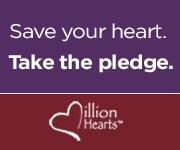Who Has the Softer Heart?
 I have always been the daydreamer, the idealist, and the tenderhearted. I have always believed in the goodness and kindness of others.
I have always been the daydreamer, the idealist, and the tenderhearted. I have always believed in the goodness and kindness of others.
I believe that makes me “soft-hearted.”
I doubt I will ever change.
That is the way God has wired me.
Yet, a recent story, from 60 Minutes Overtime, with Lesley Stahl, discloses that I am strong-hearted. Nah… Could I really be hard-hearted?
You will see in the following video of a 60 Minutes Overtime report some surprising medical differences between males and females. Ms. Stahl is shown with two pig hearts – one male and one female. With surgical gloves on, she palpates the differences in the hearts, relating one is “squishy” and one is “tough and strong.” When you take a look at the video, you will see that the “tough heart” is female and the “squishy heart” is male.
Joined by Dr. Doris Taylor of the Texas Heart Institute, we are informed that the “underlying framework of male hearts and female hearts has recently been found to be different. And furthermore, it is true for every organ – kidney, liver, heart.”
This demonstration validates the simple notion that men and women are medically different – an area that is understudied and needs to be highlighted, specifically in medical research. In some ways, we could say that political feminism has tainted research and in ways it can interfere with medical science. The video focuses on our own personal uneasiness with the fact of natural gender differences and in terms of suppressing research opportunities. We need equal number of studies in both women’s health and men’s health to provide effective knowledge in health and disease prevention.
Looking at other physiological and medical gender differences in relation to heart disease, I see these as most on the forefront.
Men and women react different to medications.
The New York Times, in their health blog entitled “The Drug-Dose Gender Gap”
reported men and women metabolize drugs differently. The Food and Drug Administration recently evaluated the sleeping medication known as Ambien. The findings concluded that the dosage of Ambien for women should be half the dosage given to men.
More studies have found that women respond differently than men to many drugs from aspirin to anesthesia, increasing the number of adverse side effects experienced in the female population. A few other examples include Seldane, an antihistimine and the gastrointestinal medication Propulsid which theoretically could result in a fatal heart arrhythmia, posing the greater risk in women. Conversely, some medications like Verapamil, an antihypertensive medication and the antibiotic erythromycin are more effective in women. These differences appear to be related to the increased percentage of body fat and hormonal changes women experience.
Warning signs of a heart attack differ.
Some heart attacks are sudden and intense — the “movie heart attack,” where no one doubts what’s happening. But most heart attacks start slowly, with mild pain or discomfort. Often people affected aren’t sure what’s wrong and wait too long before getting help.
Heart disease is the No. 1 killer of women. Yet, women often chalk up the symptoms to less life-threatening conditions like acid reflux, the flu or normal aging. Women are the nurturers – the ones who put family and others first under all circumstances. Women often experience vague symptoms – shortness of breath, upper back pressure, jaw pain, dizziness, lightheadedness and nausea and/or vomiting. Rosie O’Donnell’s HEPPP acronym for symptoms of a heart attack for women is easy to remember, so you can act quickly. The words are: Hot— hotter than you’ve ever been before, Exhausted – more tired than you’ve ever been, Puke, Pain and Pale.
Men, on the other hand, often present with the typical feeling of chest pain, “like an elephant sitting on my chest.” They often experience pain radiating down their left or right arm.
Women’s hearts and arteries are smaller than men’s.
According to the Harvard Health Publications
“Women have smaller and lighter coronary arteries than men do. This makes angiography, angioplasty, and coronary bypass surgery more difficult to do, thereby reducing a woman’s chance of receiving a proper diagnosis and having a good outcome. Women tend to have more complications following surgery.”
The difference in size is a reflection of smaller body size and to sex hormones like estrogen, progesterone and testosterone. This, in turn makes the arteries more prone to clots or plaque blockages as well as the fact that women have a greater death rate following bypass surgery than men.
Outcomes in heart-related medical procedures differ between men and women.
Women also don’t seem to fare as well as men do after taking clot-busting drugs or undergoing certain heart-related medical procedures.
The Annals of Internal Medicine reports:
“Gender-specific considerations related to diagnostic test performance may influence the choice of procedures used to evaluate chest pain syndromes in women. Electrocardiographic (ECG) stress testing in women has a lower sensitivity and specificity compared with men, not only because of gender differences in prevalence and extent of disease but also because women are less likely to achieve an adequate heart rate response and more likely to have repolarization abnormalities. In addition, hormone replacement therapy may induce a false-positive ST-segment depression, thereby reducing the specificity of ECG exercise testing in women.”
Diabetes, high density lipoproteins and triglycerides levels have been found to have a greater effect on coronary heart disease risk in women compared to men.
Cardiovascular Research reports:
“Several studies reported the existence of a gender difference in the use of diagnostic and therapeutic procedures for CHD. Women were less likely to be referred for diagnostic and therapeutic procedures. Also the prognosis for women with CHD was worse than for men. Although most risk factors contribute to CHD in both men and women, the impact of individual risk factors might be different. The influence of the menopause on both cardiovascular risk factors and CHD is unique for women. Hence, women form a distinct subpopulation within patients with CHD. This should be acknowledged in the management and assessment of CHD.”
“Compared to diabetic men, who have a two-fold to three-fold increased risk of CHD, diabetic women are reported to have a three-fold to seven-fold increased risk.”
“High-density cholesterol (HDL) levels are reported to correlate closely and inversely with the risk of CHD. HDL levels are higher in women than in men from young adulthood onwards. Some studies, but not all, have described a decrease in HDL levels following the menopause. The loss of protection from HDL is considered to be a major factor for the increased coronary risk in postmenopausal women. It has been suggested that low levels of HDL are more predictive of coronary artery disease in women than in men.”
 Beyond the ramifications of the study – that gender matters in heart disease – lies a provocative tidbit that could promote a heart-warming conversation!…
Beyond the ramifications of the study – that gender matters in heart disease – lies a provocative tidbit that could promote a heart-warming conversation!…
Men have soft hearts. Woman have strong hearts.
Your thoughts, please.
Please watch Lesley Stahl of CBS 60 Minutes as she reports on the surprising medical differences between males and females.


Very interesting!!!!!
Thank you, Theresa
You certainly have given us a lot to think about, Ron. Mother Teresa, with her heart of gold, is a source of inspiration to us all. “Give of your hands to serve and your heart to love.” Thank you so much for your response.
Informative and valuabe reading Sharon. Heart disease has claimed too many lives, including members of the Straka/Shankie clan. Th ere is no doubt some people are born with a heart of gold.(You and Theresa>)I wonder if medical science could explain MOTHER Theresa’s heart-that should be on display in the Smithsonian as a wonder of the world!
I had never heard any of today’s information before. Very informative. Thank you once again. Ida mae
Thank you Ida Mae.
It is always good to hear from you.
So they scientifically have said a woman’s heart is stronger than a man’s….very interesting! Somehow, us women may have known this all along?? We just need to take care of them, right?
Surely we have known that all along! Thanks, Elaine.